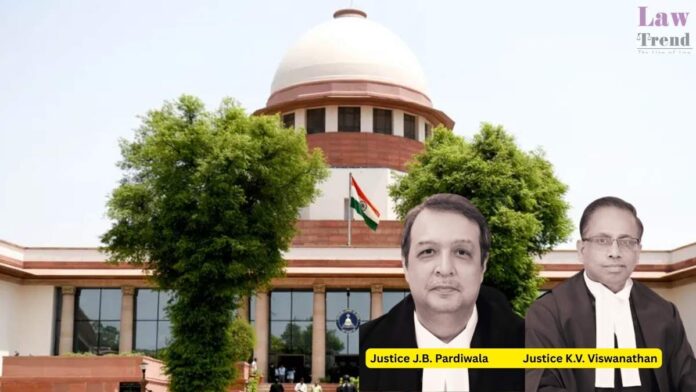The Supreme Court of India has held that a deed assigning a decree for specific performance of an agreement of sale of immovable property does not require mandatory registration under Section 17 of the Registration Act, 1908. The bench, comprising Justice J.B. Pardiwala and Justice K.V. Viswanathan, dismissed the appeal filed by the legal heirs
To Read More Please Subscribe to VIP Membership for Unlimited Access to All the Articles, Download Available Copies of Judgments/Order, Acess to Central/State Bare Acts, Advertisement Free Content, Access to More than 4000 Legal Drafts( Readymade Editable Formats of Suits, Petitions, Writs, Legal Notices, Divorce Petitions, 138 Notices, Bail Applications etc.) in Hindi and English.




